Are Portable Solar Generators Worth It?
ZacharyWilliamPortable solar generators are becoming increasingly popular as people seek clean, quiet, and versatile alternatives to traditional fuel-powered generators. But are they really worth the investment? In this article, we’ll explore the pros, cons, costs, and real-world use cases to help you decide.
Table of Contents
What is a Portable Solar Generator?
A portable solar generator combines solar panels, a battery pack, a charge controller, and an inverter into one convenient system. Unlike traditional gas generators, it harnesses sunlight to store power for later use—making it safe to run indoors, at campgrounds, or during emergencies.

The Benefits of Portable Solar Generators
- Clean & Eco-Friendly: Uses renewable solar energy with zero emissions.
- Quiet Operation: No noisy engines like traditional fuel generators.
- Low Operating Costs: No fuel or oil needed after the initial purchase.
- Portability: Lightweight, compact, and easy to carry for camping or RV trips.
- Versatility: Can power CPAP machines, refrigerators, laptops, phones, and more.
The Limitations of Portable Solar Generators
- High Initial Cost: Often pricier upfront compared to gas generators.
- Charging Speed: Solar charging can be slow, especially on cloudy days.
- Capacity Limits: Most models cannot run heavy-duty appliances for long periods.
- Weather Dependence: Works best in sunny regions with reliable solar input.
Cost Breakdown: Are They Really Worth It?
Prices for portable solar generators range from $300 to $3,000+, depending on capacity and features. While upfront costs are higher than gas generators, long-term savings include:
- No recurring fuel expenses.
- Minimal maintenance—no engine parts to service.
- Long lifespan batteries (LiFePO₄ often last 3,000–4,000 cycles).
For example: A family in hurricane-prone regions may save hundreds on fuel costs over 5–10 years, while campers enjoy silent, emission-free power without carrying gas.
Use Cases That Justify the Investment
- Emergency Preparedness: Keep lights, phones, and medical devices running during blackouts.
- Camping & Outdoor Adventures: Quiet power source without disturbing nature.
- RV Travel: Eco-friendly and quiet power on the road.
- Eco-Conscious Homeowners: Reduce carbon footprint while staying prepared.
When They Might Not Be Worth It
Portable solar generators may not be the right choice if:
- You need to power an entire household during outages.
- You live in areas with very limited sunlight exposure.
- You’re on a tight budget and only need occasional backup power.
Alternatives to Consider
- Gas-Powered Portable Generators: Cheaper upfront, but noisy and fuel-dependent.
- Hybrid Systems: Combine solar charging with fuel backup for flexibility.
- Portable Power Stations (without solar): Charge from wall outlets or car and use as backup.
Final Verdict: Are Portable Solar Generators Worth It?
Yes—if your priorities are quiet, eco-friendly, and versatile power for emergencies, camping, or RV life, a portable solar generator is absolutely worth the investment. However, if you need to power an entire household or heavy-duty equipment, a larger system or hybrid approach may be better.
Continue Reading:
- Benefits of Using a Solar Generator
- How to Choose the Right Solar Generator
- Can a Solar Generator Power a House?
- What Size Solar Generator Do You Need to Power a House?
Recommended Product

UDPOWER S1200 Portable Power Station
- Ideal for camping, RVs, and emergency home backup.
- Multiple output ports for phones, laptops, mini-fridges, CPAP, and more.
- Supports wall, car, and solar charging for flexible recharging.
- Indoor-safe operation—no gasoline, no fumes, low noise.
Tip: Pair with a foldable solar panel to harvest clean energy during outages or off-grid trips.
FAQs
1. How long can a portable solar generator run?
It depends on capacity and load. A 1,000Wh generator can run a 100W appliance for ~10 hours.
2. Can a solar generator power a refrigerator?
Yes, but runtime depends on fridge wattage and generator capacity. Many mid-sized models can run a fridge for 6–12 hours.
3. How many years does a solar generator last?
LiFePO₄ batteries often last 8–10 years or 3,000–4,000 cycles.
4. Do portable solar generators work on cloudy days?
Yes, though charging is slower. They can also be recharged via wall outlets or car sockets.
5. What size solar generator do I need for camping?
300–600Wh is usually sufficient for lights, phones, and small electronics.
6. Can solar generators charge while in use?
Most modern models support pass-through charging, meaning they can power devices while charging.
7. Are solar generators safe to use indoors?
Yes, unlike gas generators, they emit no fumes and are safe for indoor use.
8. What is the difference between a solar generator and a power station?
A solar generator includes solar panels; a power station is just the battery + inverter, panels are optional.
9. Can you use a solar generator without solar panels?
Yes, you can charge it via wall outlets or car sockets if solar is unavailable.
10. Are solar generators allowed on airplanes?
No, large-capacity batteries exceed airline limits. Small power banks may be allowed if under 100Wh.
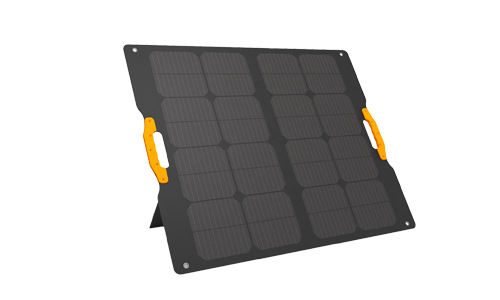
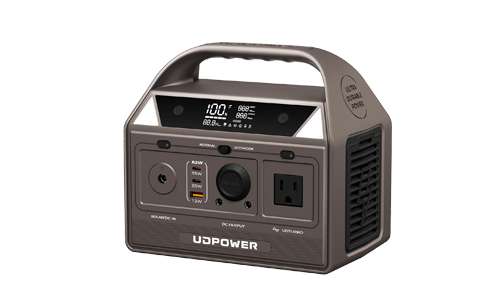
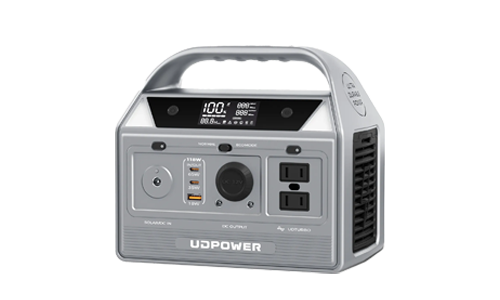
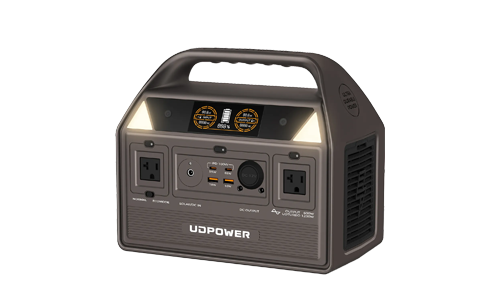
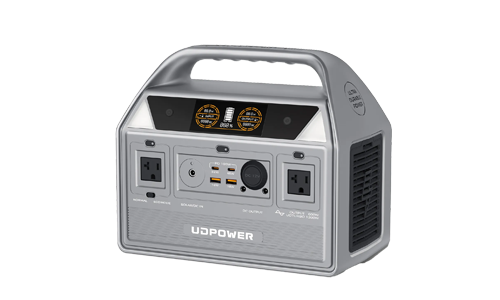


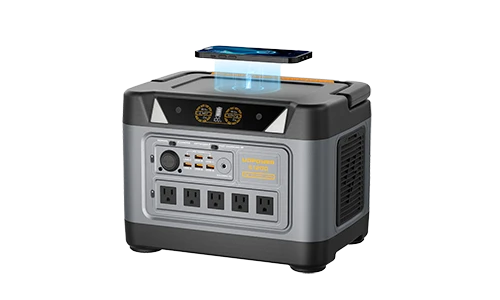
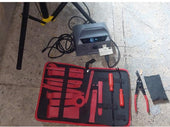

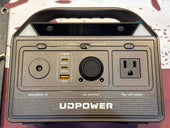
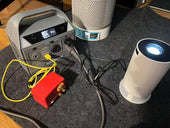
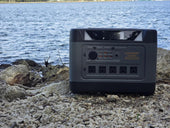
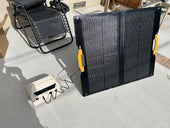

















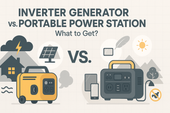
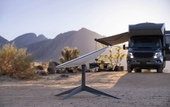



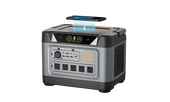







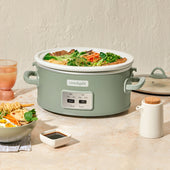






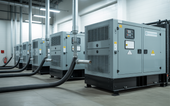
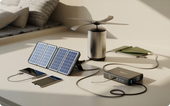
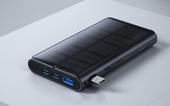


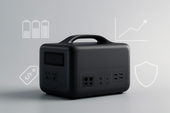







![How to Live In The Woods [Complete Guide]](http://udpwr.com/cdn/shop/articles/Off-Grid_Cabin_Option_f6c94fe7-1ae7-4c3a-baf5-ed9fe684c832.png?v=1763523215&width=170)




